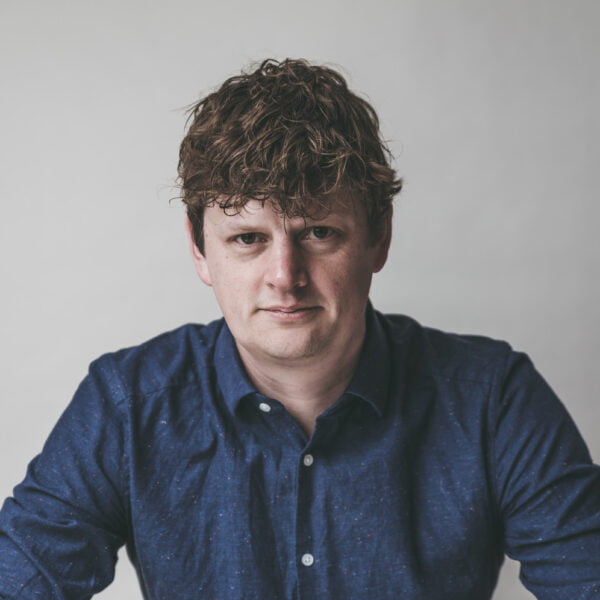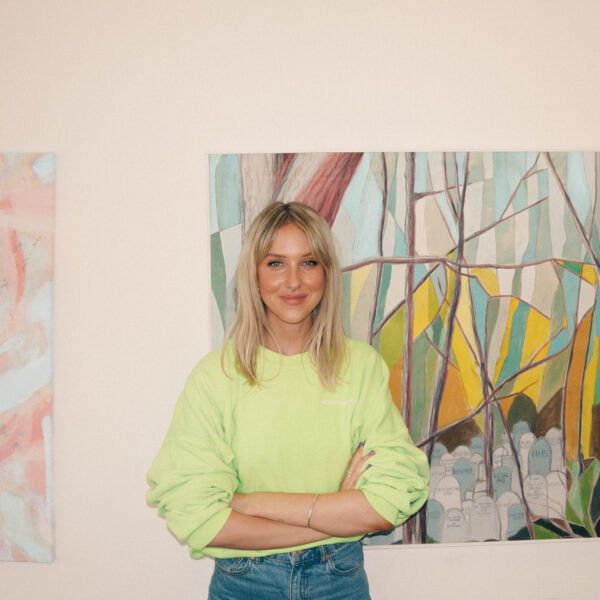
Natasha Collie
Senior Brand Marketing Manager at Penguin Random House UK
At the start of the year, Ladybird Books approached Sonder & Tell with a dream brief. In 2021, a year that’s been particularly challenging for...
In conversation with
Co-Founder of LOAH

LOAH is one of the top low/no alcohol beer brands in the UK. And last year, we worked with them to bring their strategy to a new level. One that didn’t follow the rest of their category standing against alcohol and being healthy. We called it ‘Blue Sky Drinking’.
The space of low/no alcohol beer has a very brand conscious customer, and now more than ever, people are looking for moderate options. This means there are a lot of opportunities to explore, but there’s also a stigma to break: drinking a no/low alcohol beer means sacrificing quality or flavour.
We spoke with William, one of LOAH’s co-founders, about the importance of listening to what customers want, the impact ‘Blue Sky Drinking’ had on their business, the celebrities he thinks reflect LOAH’s personality, and more.
I started as a marketing freelancer and began collaborating with a couple of designers and strategists in London, and after a few years we formed an agency called Anatomy Brands. They’re still around but I left the team in 2019 to start a family.
Then, around the second lockdown in 2020, Hugo, LOAH’s Co-Founder, reached out to me because he was struggling getting the brand to the right place. So I came on board for that challenge and ended up joining LOAH full time.
Brand is an essential space to LOAH’s success. The category is still new and there’s lot of multi operator brands. As the independent space is quite crowded, we felt brand was one of the main areas where we could stand out, and our kind of customer is very brand conscious.
The biggest trope is we assume people think it’s a substitute for alcohol, and we feel a lot of the category falls into that. It’s like making a sacrifice and therefore you are willing to give up quality or flavour. In hand with this is wellness. Again, it’s something that makes sense but it’s already done. We didn’t want to build LOAH around that. The consumer profile is much more interesting and diverse than young, good looking people wanting to go on runs.
Our thinking is that people are looking for moderate options. You CAN have a great quality no alcohol beer that is great to drink. So we came to Sonder & Tell because we needed to find a brand message and identity that avoids talking about the belief that this is a substitute downgrade.
Getting to this proposition was a real lightbulb moment for us. One of the reasons why we approached Sonder & Tell was because we’ve been struggling with all the ideas we had on who we are and what we are not.
‘Blue Sky Drinking’ was a grounded concept that allowed us to go on the consumer side of things. It also gave our designer a strong basis for our visual identity. Finally, it actually does speak to how we want to approach the way we run the business.
We want everything to be cutting edge, and everything we do, we want to have an eye on doing it left field. That thinking has been solidified by our brand approach. For us flavour is everything, in terms of liquid, bold and not for everyone. And so is our brand.
“The consumer profile is much more interesting and diverse than young, good looking people wanting to go on runs.”
That’s not something I can share in detail yet. But for us the interesting space is the link between creativity and the non-alcohol sector.
One thing we did at the end of 2022 was a partnership with the Shoreditch Design Triangle, where we launched a beer for the London Design Festival. We’re also collaborating with FOLD, one of the avant garde techno clubs in London, as sober raving is kicking off.
We’re bringing more can collaborations where illustrators can show their take on ‘Blue Sky Drinking’, and launching limited edition brews with collaborative recipes from chefs and mixologists.
Those are exactly the kind of things we want to continue doing. By 2024, we hope to create an arts fund, to pay a decent part of our revenue to support arts.
Good question but difficult to answer when you’re a product brand, especially when influencers and celebrities are not our DNA.
The kind of people who represent LOAH are people in the creative space who live their life their own way. Saying this, there’s two people that spring into mind: Harry Styles, who has gone from being a manufactured pop-star to completely developing his own creative and fashion style; and Dominic Calvert-Lewin, as he’s disrupted the masculine industry of football and he doesn’t care.

There’s a total summery feeling about having our lager & lime beer, so I’ve always thought a beach park wherever you fancy would be the best campaign.
The key thing is to get cans in peoples hands. Because some had bad experiences with no alcohol beer and others don’t like beer at all. We must cross that barrier when it is in person rather than finding it on the shelf. We want to get people to try it because we’re confident that regardless of what they think of the flavour, they’ll like it.
To be honest, at home. A comfortable place is the perfect spot to drink a LOAH. I often have one when I’m cooking or after work. There’s a ritual about that moment of the can snapping. It’s a beautiful moment for the brand.
The two best places to find us are at your local Budgens or CostCutter. And of course, on our website. We’ve got free delivery throughout Dry January.
Other great places, who are good partners of us, are the Lady Hamilton Pub, F. Mondays, and Clapton Craft (who have 8 sites across London).
In the next few months we’ll also be available in all big supermarkets!

Senior Brand Marketing Manager at Penguin Random House UK
At the start of the year, Ladybird Books approached Sonder & Tell with a dream brief. In 2021, a year that’s been particularly challenging for...

Founder Of Simple Politics
Talking about serious issues doesn’t mean defaulting into a serious tone of voice, or using complicated language. If anything, accessibility, clarity and a touch of...

Brand & Community Manager at Homethings
Creating a tone of voice from scratch can be challenging. But a blank slate to work from also mean there’s room for something a bit...


Founder of Stories Behind Things